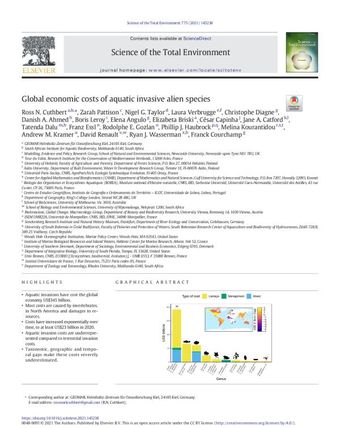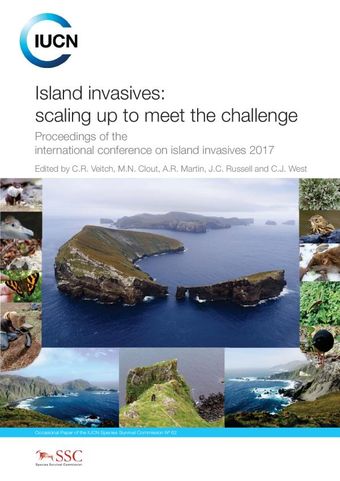Will Alien Plant Invaders Be advantaged Under Future Climates?
- Description:
- The last two decades have seen an upsurge in research into the potential synergies between invasive species and climate change, with evidence emerging of increased invader success under climate change. All stages along the naturalization-invasion continuum are likely to be affected, from the introduction and establishment of alien species to their spread and transition to serious invaders. A key question is whether alien plants will have a relative advantage under climate change conditions. So far, evidence for differential responses of alien invasive and native species to climate change drivers (elevated CO2) and outcomes (increasing temperature, changing rainfall patterns, changes in disturbance regimes) is mixed. Although alien invasive plants appear to be more responsive to elevated CO2 than many native species, plant response to elevated CO2 and other climate change components is dependent on environmental conditions and resource availability. Similarly, correlative modelling of species-climate relationships has not revealed clear evidence that invasive plants are likely to be able to increase the extent of suitable habitat under future climates any more than their native counterparts. We suggest that the most important driver of a shift to alien-dominated vegetation under climate change will be the superior capacity of alien invasive plants to take advantage of colonisation opportunities arising from climate change, such as extreme climatic events, changes in disturbance regimes, and widespread reduction in vegetation resilience as range margin populations decline. There are substantial challenges ahead for managing invasive plants under future climates. Weed risk assessment and management approaches must incorporate consideration of future climatic conditions. Most importantly, we will need a shift in management approaches away from a focus on the control of undesirable alien plant species to building resilience of resident vegetation assemblages, in association with targeted monitoring and early eradication of alien plant species.
- Location:
- Worldwide
- Collections:
- Secretariat of the Pacific Regional Environment Programme (SPREP)
- Content partner:
- Secretariat of the Pacific Regional Environment Programme (SPREP)
- Availability:
- Not specified
-
Copyright status: All rights reservedFind out more about what you are able to do with this itemThis item is all rights reserved, with means you'll have to get permission from Secretariat of the Pacific Regional Environment Programme (SPREP) before using it. For more information, please see our use and reuse page.What can I do with this item?Non-infringing useNZ copyright law does not prevent every use of a copyright work, and this item may be hosted by an international institute or organisation. You should consider what you can and cannot do with a copyright work.No sharingYou may not copy and/or share this item with others without further permission. This includes posting it on your blog, using it in a presentation, or any other public use.No modifyingYou are not allowed to adapt or remix this item into any other works.No commercial useYou may not use this item commercially.
Related items
Welcome and warm Pasifik greetings
The information on this site has been gathered from our content partners.
The names, terms, and labels that we present on the site may contain images or voices of deceased persons and may also reflect the bias, norms, and perspective of the period of time in which they were created. We accept that these may not be appropriate today.
If you have any concerns or questions about an item, please contact us.



